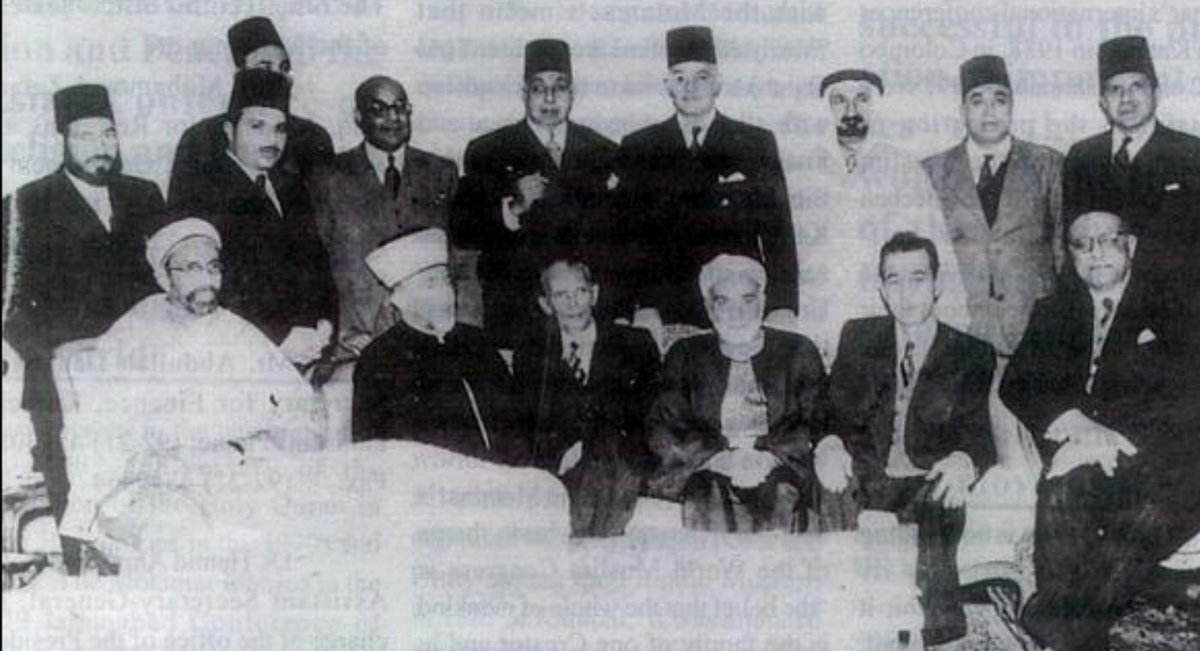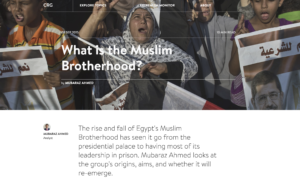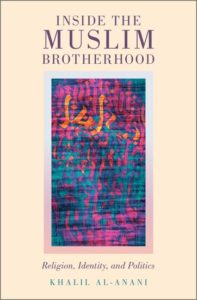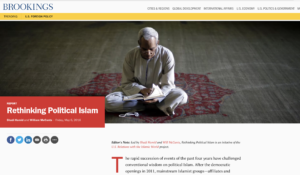
From its spectacular rise to power in Egypt in the aftermath of that country’s 2011 popular revolution to its equally swift downfall and oppression in 2013 to current discussions about the U.S. government possibly designating it a terrorist organization, the Muslim Brotherhood has been the focus of active and vociferous debate in recent years. There is a voluminous academic literature on the Brotherhood, and seemingly endless coverage and commentary in the media and various online forums.
So where should you begin reading if you want a better understanding of the origins, evolution, and nature of the Muslim Brotherhood? The Maydan team has hand-picked some of the best and most authoritative sources on the Brotherhood for this first installment of our What You Should Read series. Whether you are looking for a straightforward online primer or an in-depth ethnographic study, our list—which represents a diverse range of perspectives—likely has something to suit your needs.
ONLINE PRIMER
For an accessible and quick online primer, check out Mubaraz Ahmed’s “What is the Muslim Brotherhood?” published by the Centre on Religion & Geopolitics, an affiliate of the Tony Blair Faith Foundation in London.

ACADEMIC STUDIES
If you’re looking for a full-length academic treatment of the Brotherhood, there are many excellent options. We present three here—a standard classic as well as two recent studies notable for their depth, empirical richness, and access to internal Brotherhood sources:
Richard Mitchell, The Society of the Muslim Brothers
First published in 1969, this was the first in-depth academic treatment of the Brotherhood and it remains valuable today.
Carrie Rosefsky Wickham, The Muslim Brotherhood: Evolution of an Islamist Movement
The product of multiple decades of research and close access to the Brotherhood, Wickham’s book is particularly noteworthy for its analysis of the sociology underpinning the movement’s evolution in recent decades.
Khalil Al-Anani, Inside the Muslim Brotherhood: Religion, Identity & Politics
Based on numerous interviews with Brotherhood members, this recent study is particularly strong in its analysis of generational differences within the movement as well as its framing of the issues likely to shape the future of Brotherhood. 
Lorenzo Vidino, The New Muslim Brotherhood in the West
Vidino’s book explores some of the more controversial aspects of Muslim Brotherhood-linked organizations in Europe and North America, and more specifically the question of whether such groups are best understood as representatives of local Muslim needs and interests or as front groups for foreign agendas.
ONLINE ESSAYS & COMMENTARY
Upheaval across the Middle East in recent years is reshaping the landscape of Islamist politics in fundamental ways, and these developments have generated a wealth of analysis and commentary. Here’s a selection of some of the best stuff currently out there:
Project on Middle East Political Science (POMEPS), Rethinking Islamist Politics
Short essays by 16 leading scholars on contemporary Islamism, all trying to make sense of the rapidly evolving terrain of Islamist politics in the Middle East.
The Brookings Institution’s Rethinking Political Islam Project
Taking the 2013 coup in Egypt as its point of departure, this research project examined how the Egyptian Muslim Brotherhood and similar Islamist groups in 11 countries in the Middle East and elsewhere in the Muslim have responded to the new political environment around Islamist politics. 
Eric Trager & Marina Shalabi, “The Brotherhood Breaks Down”
A more skeptical portrait of growing internal fragmentation and organizational breakdown within the Brotherhood.

